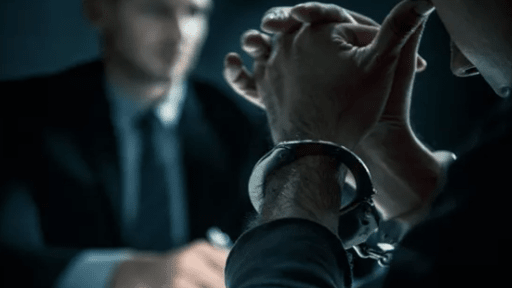
Ever wondered why some folks end up doing sketchy stuff? Over the years, psychologists have dug into this complex world of criminal behavior, peeling layers after layers, knowing everything related to the Psychology of Criminal Behavior.
What they’ve found is pretty interesting. According to many psychologists, criminals don’t usually see themselves as straight-up villains. They don’t wake up thinking they’re evil; they’re just experts at convincing themselves that what they’re doing is somehow acceptable.
It’s like they’ve got a whole bag of excuses, from thinking stolen stuff is no biggie because of insurance to downplaying their victims.
Understanding these mind games helps peel back the layers of what leads someone down the wrong path. The intricacies of these rationalizations open a window into the psychological landscape that shapes criminal behavior.
Think about how criminals talk to themselves to feel okay about what they’re doing. It’s not just saying, “I did something wrong.” They come up with all sorts of reasons to make it seem okay, like saying the older adult they robbed was going to die soon anyway or making excuses for hurting someone based on how they dressed. It’s like they have a bunch of justifications to convince themselves it’s fine.
Another facet of criminal psychology involves the dehumanization of victims. Criminals might rationalize their actions by viewing their targets as less than human, making it easier to justify theft, assault, or other criminal acts.
This dehumanization process often involves casting victims as deserving of their fate or stripping them of their humanity based on race, age, or other arbitrary criteria.
After reducing victims to mere stereotypes or dismissing their humanity altogether, criminals create a psychological buffer that allows them to distance themselves from the consequences of their actions. This process is particularly pronounced in cases involving elderly victims, where the criminal may dismiss their worth based on age-related biases.
In some cases, criminal behavior is driven by underlying psychopathy or sociopathy, where individuals exhibit minimal emotional affect and a complete lack of empathy. For these individuals, criminal acts may not be accompanied by the moral struggles or internal debates that others experience.
The absence of emotional response and empathy may pave the way for remorseless criminal actions, as seen in scenarios where perpetrators dismiss shootings or theft as mere necessities for personal gain.
As we navigate the complex landscape of criminal behavior, criminologists have adopted a scientific approach to unravel the factors contributing to unlawful acts. Exploring biological risk factors, adverse childhood experiences, negative social environments, and substance abuse provides a scientific foundation for understanding why individuals may be predisposed to criminality.
Just as we inherit eye color, our brain’s chemical makeup is beyond our conscious choice. Psychologists posit that variations in autonomic arousal, neurobiology, and neuroendocrine functioning can contribute to an increased likelihood of engaging in criminal acts. While not deterministic, our biology may influence our susceptibility to criminal behavior.
Research indicates that individuals with a history of adverse childhood events are very likely to engage in criminal activities during both their juvenile and adult years. Understanding these early-life influences provides crucial insights into the roots of criminality.
Our surroundings wield considerable influence over our behavior. High-crime neighborhoods can elevate the risk of criminal engagement, but it’s not just proximity to criminal activity that matters.
Living in poverty is a big deal and adds stress, which might push people to turn to crime to get by.
The undeniable link between substance abuse and criminal behavior cannot be overlooked. A staggering 85% of the American prison population has a history of drug or alcohol abuse. Intoxicants, by altering our physiological and psychological states, compromise self-control and decision-making. This altered state can catalyze criminal acts, with addiction potentially driving individuals to crime to sustain their habit.
In the pursuit of understanding crime, the intersection of psychology and science offers a whole rounder lens through which we can analyze the myriad factors contributing to unlawful actions.
The quest for answers continues as researchers strive to understand the minds of those who find themselves on the wrong side of the law.